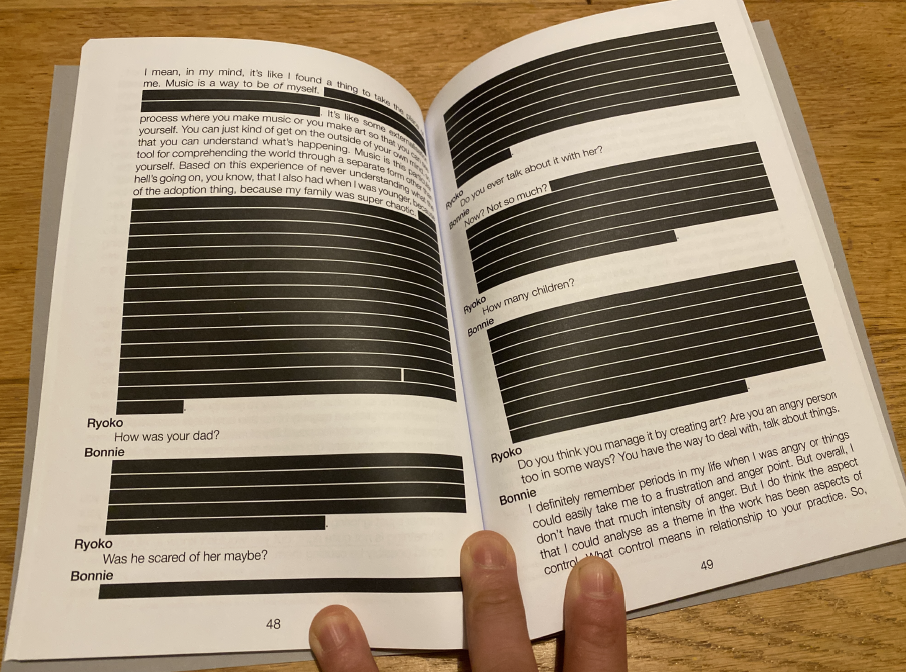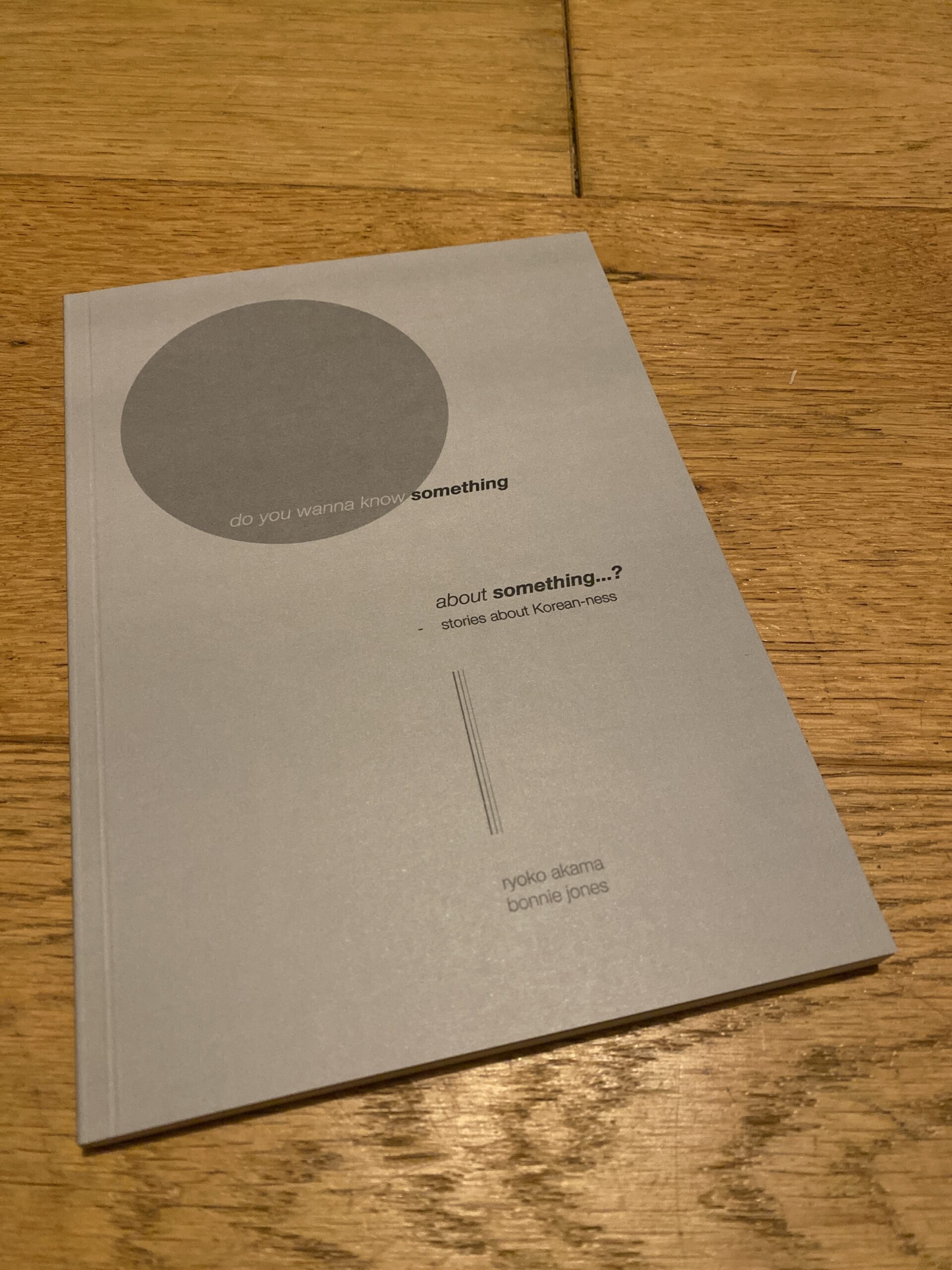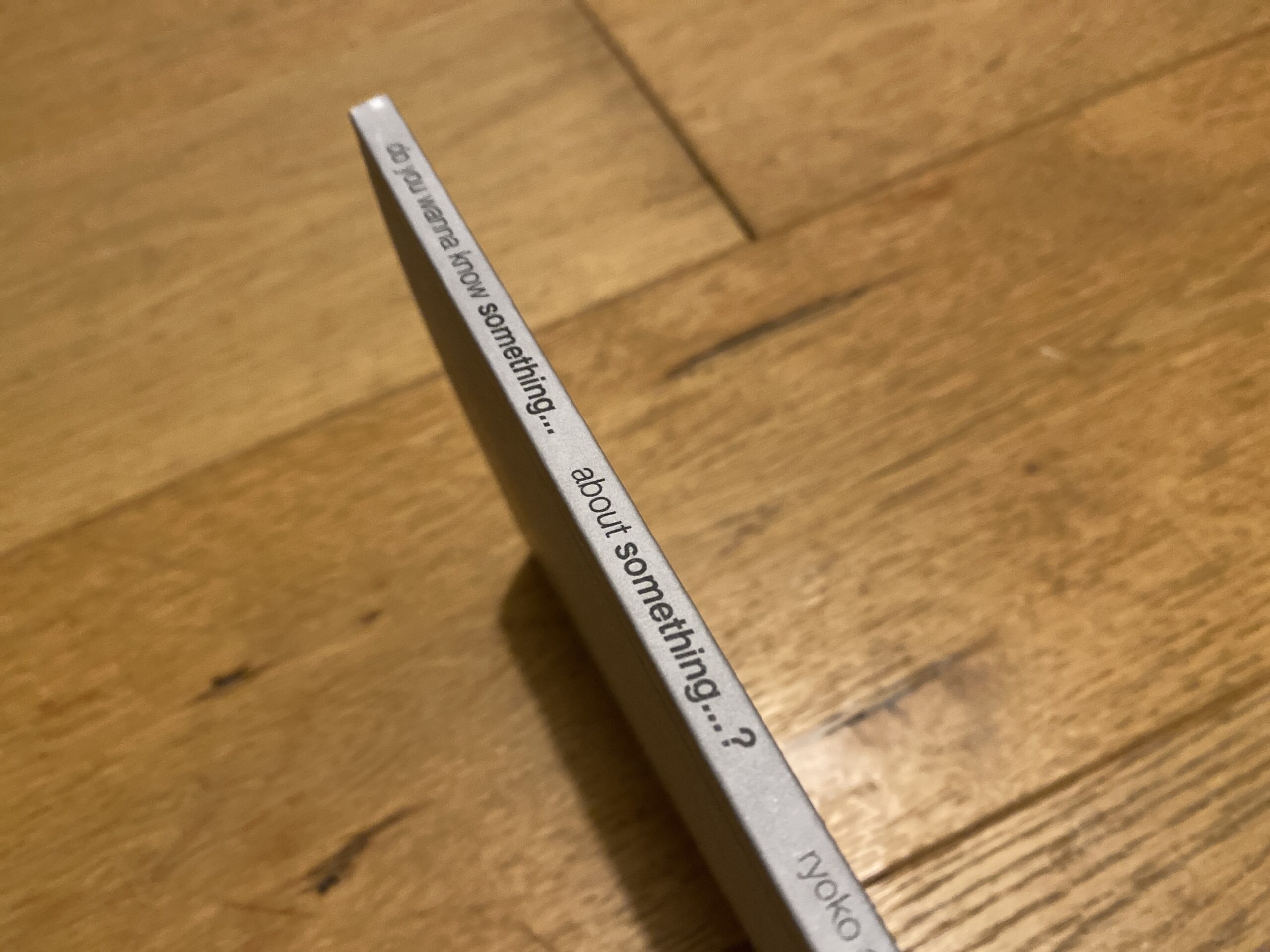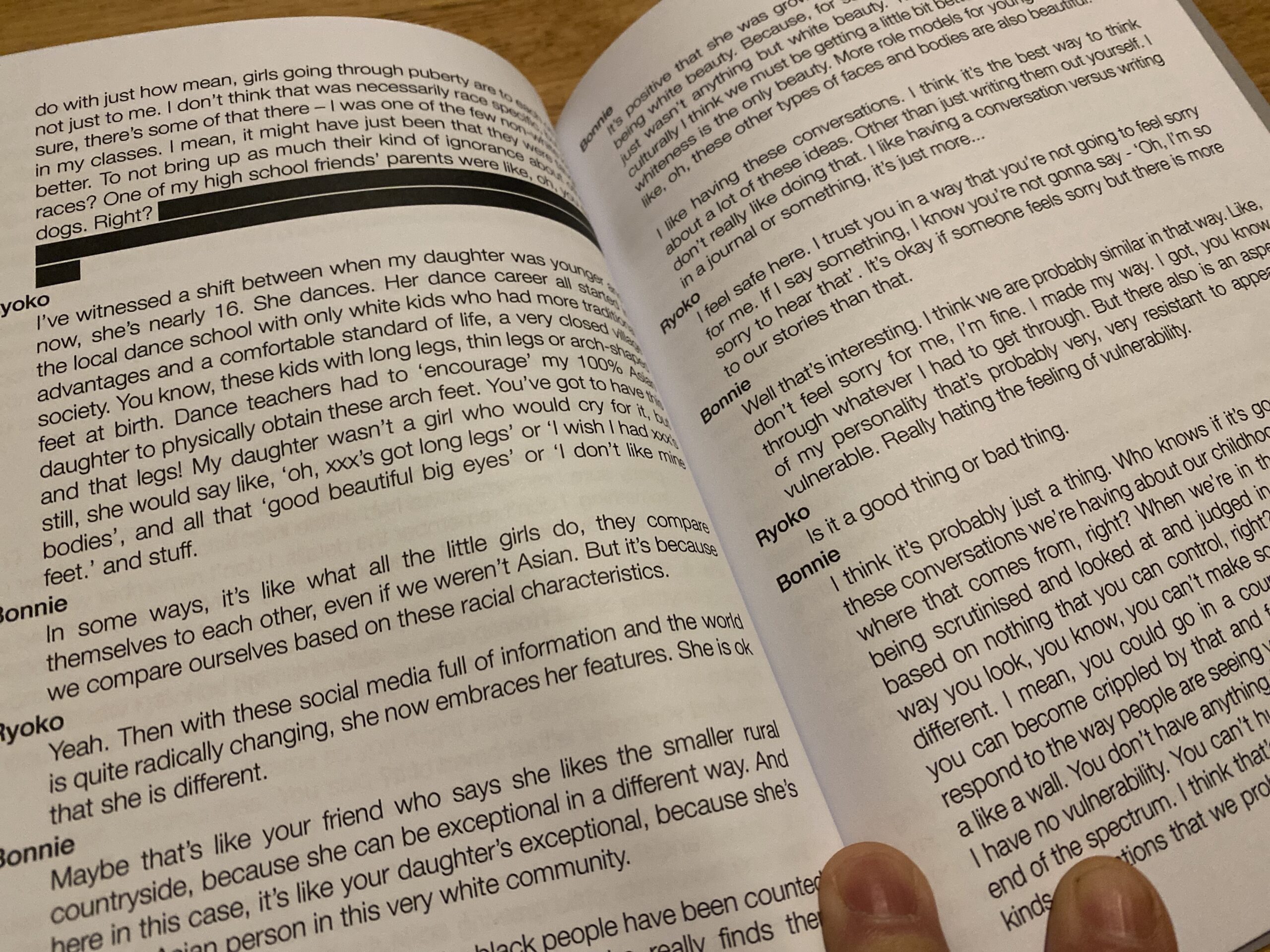do you wanna know something about something? – conversations on Korean-ness : Bonnie Jones and Ryoko Akama : mumei 11



BUY
This is not book on sound or music score. This is a book that contains four conversations carried out by two artists who often work with sound and music, who are ‘kind of’ Koreans and ‘kind of’ not Koreans.
A5 size : 127 pages : black and white
Design: Stephen Harvey : redvirginsoil
Print: Jump North
Introduction :
This project is about family heritage, root and identity. Born in Japan between Korean dad and Japanese mom, and lived in the UK more than a half of my life, cultural fluidity is the word that describes my internal struggles towards diversity and cohabitation. I never know what I am. I was not raised as zainichi but I am, or am I?
My father was a 2nd generation Korean who lived in Japan. So I was told but who knows? His life was not so easy. So I was told but how? I don’t know. No-one told me enough. But since his death, that coincided with the start of this project, things started to unravel very very slowly. My mom occasionally giggles and repeats – do you wanna know something about something? Some stories are funny but there are shocking ones too.
Bonnie is my partner in crime. She is an intelligent, witty and caring person whose art works are strong with individual characteristics. When she told me that she was a Korean adoptee who’d been making various mediums of work based on the topic, I knew I would one day work with her.
And, here we are.
This book is a transcription of four conversations we carried out. The final script was tidied up in order to be readable, however, the basic content was kept unedited. There are certain sections we‘d rather maintain as not-publicised. Instead of omitting these sentences off, we censored them out. There is a sense of humour to censor ourselves, rather than being censored by other authoritative power. – Ryoko Akama, 2023
When Ryoko invited me to collaborate on this project in early 2023, it was during a period of intensive research and writing. At the time, my mind was full of the history and personal testimonies of transnational, and transracial adoptees from Korea. I was wrestling with how the stories that I was told growing up, about how adoptees came to the US, contrasted with recently acknowledged truths. The story I heard growing up was that I was abandoned at the police station in Seoul. Other adoptee friends were told their parents had died, or their mother was a single parent and couldn’t keep them. The last story often came with the implication that she may have been a sex worker and her indiscretions led to her pregnancy.
This collaborative book project, about historical erasures of origins and identities came into my life with amazing synchronicity. It offered me a way to process all this intense information through intimacy, laughter, and conversation with a trusted friend. As improvisers, Ryoko and I share a curiosity about how processes shift and transform as new ideas become activated. We are both fascinated by how people and environments contribute to those transformations and are themselves transformed. I think of our conversations as improvisations on personhood, improvisations on identities, improvisations on friendship. Through these conversations, the complexity of our subject matter is not simplified or reduced. Instead, I hope these intimate communications show how we can expand our capacity to embrace all the possible and beautiful differences we inhabit. – Bonnie Jones, 2023
Table of Contents
Introduction
Conversation 01 : 3rd July 2023
Conversation 02 : 24th July 2023
Conversation 03 : 14 August 2023
Conversation 04 : 7th September 2023
